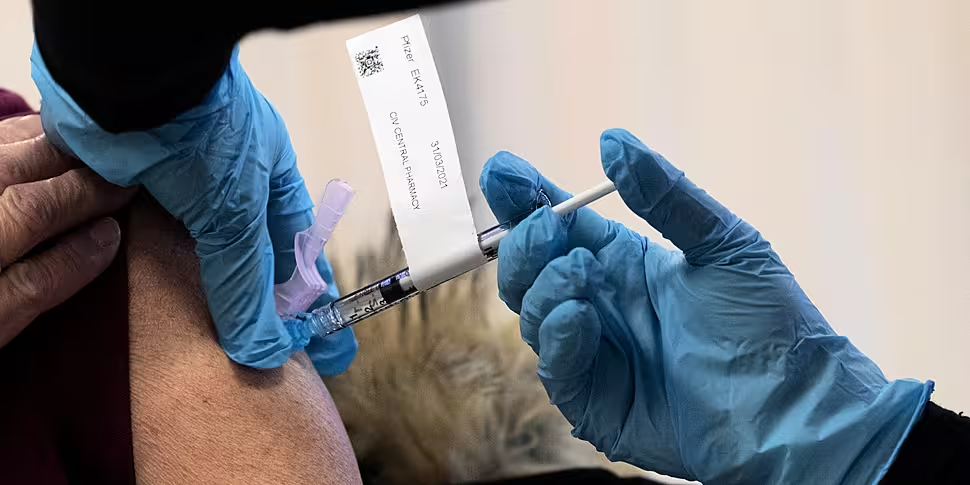A professor of genetics has said it is "unfair" to expect a coronavirus vaccine to do everything.
Health Minister Stephen Donnelly has said that it is possible the vaccine could be rolled out at a very low level by the end of the year.
The Government has been setting out its plan for how 14.6 million doses will be distributed across the country.
It will start in nursing homes and large hospitals, with mass vaccination centres set up once more vaccines are available.
Around 1,500 healthcare workers and 180 community-based staff will be involved in administering the vaccine to people around the company.
The European Medicines Agency (EMA) has said its meeting to decide whether to approve the BioNTech/Pfizer vaccine will now take place on December 21st, having previously been scheduled for a week later.
Aoife McLysaght is professor of genetics at Trinity College Dublin (TCD).
She told Newstalk Breakfast while it is a big part of what will help life return to normality, restrictions still must play a part.
"I think it's a really, really important part of it - but I don't think it's the whole thing, and I think it's a bit unfair to expect it to be the whole thing."
She said that pinning all our hopes on the vaccine alone will actually take longer.
"We still have to do the other things as well while we're waiting for everybody to receive the vaccine, because in the meanwhile people are still vulnerable".
"And the hospital system is vulnerable to strain as well - and this is something we have been working really, really hard to avoid throughout this entire year."
"We just have to keep that up for a bit longer."
"If we count everything just on the vaccine, then we'll be waiting until 80% of people are vaccinated before things are more normal".
'Vulnerable people in every age group'
She said it is not fair to say that the most vulnerable will be protected once the elderly population is vaccinated.
"The challenge there is that the vulnerable are more of an indistinct group than just being the over-85s.
"Obviously the over-85s are particularly vulnerable, but there are vulnerable people in every age group - so that's one thing."
"The other thing is just the vaccine is not 100% effective, as we know, and in older age groups that efficacy is a bit lower as well".
Prof McLysaght said this means older people may not necessarily be protected after they get the two doses, but that "they will become protected by the so-called herd immunity when a large group of people have received it".
And she believes there will be another lockdown before the vaccine is rolled out.
"I think the problem is the next lockdown's going to happen before even the vulnerable are vaccinated - we'll be probably talking about that in January."
"What I would like is that we could get back to normality by something like Paddy's Day, but we do it by using that lockdown effectively - doing all the things we should have been doing last summer.
"And then we can comfortably live at something like level one - I'd love level zero, but level one will do - until 80% of the population get the vaccine".









